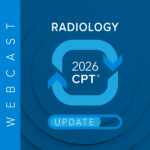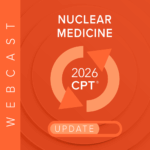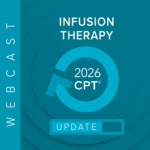Not billing the APP service can result in serious revenue cycle errors.
Many providers are still struggling with the non-physician practitioner (NPP) billing rules from the Centers for Medicare & Medicaid Services (CMS). Most facilities are now referring to NPPs as Advanced Practitioner Professionals or APPs. I get questions all the time about APP billing, and during audits many times it is found that the rules just have not been followed. Usually, this is because they are just not understood. The other issue to keep in mind is that not all payors follow Medicare’s NPP billing guidelines. What guidelines do you follow for your APPs? It is important that every APP and physician research each contracted payor to understand and follow their particular guidelines.
Who qualifies as an APP?
- Physician assistants (PAs)
- Nurse practitioners (NPs)
- Clinical nurse specialists (CNSs)
An NPP is not a:
- Registered nurse (RN)
- Certified scrub tech (CST)
- Certified first assist (CFA)
- Certified registered nurse assistant (CRNA)
- Medical assistant (MA)
Also, Medicare does not credential auxiliary personnel: staff that works in the hospital or office who are not licensed to manage care. According to Noridian, a Medicare Administrative Contractor (MAC):
“A physician may also have the services of certain nonphysician practitioners covered as services ‘incident to’ a physician’s professional services. These nonphysician practitioners, who are being licensed by the states under various programs to assist or act in the place of the physician, include for example certified registered nurse anesthetists (CRNAs), CP, clinical social workers (CSWs), PAs, NPs, and CNSs.”
APPs may perform services within their scope of practice. They may:
- Perform office visits;
- Assist in surgery;
- Perform office procedures; and
- Perform other services within the state scope of practice (state laws and regulations).
For CMS, there are three types of NPP billing:
- Incident-to
- Split/shared
- Direct billing
Let’s look at all three ways to bill:
Incident-To Services
These services are rendered by the APP but billed under a physician’s NPI number, with payment at 100 percent of the Medicare allowable. If the APP bills directly to Medicare under his/her own NPI number, then payment is reduced to 85 percent of the Medicare fee schedule allowable, which equates to a 15 percent reduction. Auxiliary personnel may also bill incident-to the physician for non-diagnostic testing services. Incident-to services are not allowed in the hospital setting, including the emergency department. CMS says in Pub.100-4, Chapter 12: “Coverage of services and supplies incident to the professional services of a physician is limited to situations in which there is direct physician supervision of auxiliary personnel. Auxiliary personnel means any individual who is acting under the supervision of a physician, regardless of whether the individual is an employee, leased employee, or independent contractor of the physician, or of the legal entity that employs or contracts with the physician.”
To meet the billing requirements, a course of treatment and plan of care must be initiated by a physician and reflect continuing active participation and management of care. This means the physician must see the patient periodically to remain an active participant. An APP may not bill incident-to for evaluation or management of a new patient or established patient with a new or worsening problem. Even though it is not required, it is recommended that the physician supervising co-sign the APP’s documentation to validate the incident-to service. Scope of practice in each state varies, but a certain percentage of the APP’s documentation must be reviewed periodically.
Incident-to services must be furnished under a physician’s direct personal supervision. It does not have to be the physician who routinely supervises the APP, but any physician in the group who is in the office suite on the date of service. There must be a physician in the same office suite as the APP who is immediately available to provide assistance or direction to the APP.
The APP must be employed, leased, or serving as an independent contractor of the physician or group, or a legal entity that employs or contracts the physician. All services provided incident-to must be within the APP’s state scope of practice.
What happens when a patient comes in, and during the course of a routine visit, the patient has a new or worsening problem? The most logical way to handle the situation is for the APP to stop and ask the physician to take over care. The patient could be rescheduled, but obviously it would cause inconvenience and would not result in patient satisfaction.
Summary of Incident-to Services
- Practice is reimbursed 100 percent of the Medicare Physician Fee Schedule (MPFS) allowable.
- If the APP bills directly to Medicare, with his/her name and NPI on the claim form, then the payment is reduced by to 85 percent of the MPFS allowable (a 15 percent reduction).
- The APP provides the entire service.
- The APP must be an employee of the physician/practice. He/she must be contractual, full- or part-time.
- The physician must have performed an initial service (at a prior date) and developed a plan of care. Services can then be delivered “incident-to” this plan.
- The physician must continue active participation on the patient’s care (re-enter the case at regular intervals).
- The patient must be an established patient without a new problem.
- The service must be delivered in an office setting. There is no incident-to in a hospital setting, including the ER.
- A physician must be in the office supervising the NPP. This does not need to be the physician who developed the plan of care.
- Medicare does not require the physician to sign every note, but it is recommended that the physician do so, as the claim is submitted under the physician’s NPI number.
- Some non-Medicare payors may require Modifier SA when billing for incident-to services under the physician’s NPI number. Please check with each individual payor.
Split/Shared Services
These services are rendered by both the NPP and the physician and are typically billed by the physician (but may be billed by the NPP). It is more advantageous to bill under the physician, who is paid at 100 percent of the fee schedule allowable.
The NPP and a physician share a visit, each performing and documenting a portion of the history, exam, and medical decision-making. The documentation may then be combined to arrive at a level of service. Usually one practitioner sees the patient and documents a note, and either the physician or APP follow up later on the same date, seeing the patient and documenting a visit note. Both visits can be combined and billed under the physician’s NPI number, which is most advantageous.
Split/shared billing applies to both office and hospital settings, except for critical care services. An APP can only bill under his/her own NPI number under direct billing. Split/shared billing is not allowed in critical care.
In the office setting, to split/share a visit you must still meet Incident-to guidelines. For example, an established patient with an existing plan of care and no new problems, with all other incident-to criteria met, may be billed under the physician’s name and number. It really does not make a lot of sense to split/share a visit in the office, because incident-to guidelines must still apply for the APP. It is actually overutilizing resources by split/sharing, but it may make sense in your office or clinic setting.
Is the patient a new patient, or an established patient with a new problem? Either way, bill under the NPP name and number regardless of the physician’s participation. A consult cannot be split/shared when billed under incident-to. It must a direct bill.
Split/Shared Summary
Only evaluation and management (E&M) services can be split/shared. This means that both providers saw and examined the patient on the same calendar day.
Office – if the service is split/shared between the APP and physician and the service does not meet “incident-to” guidelines, then bill this service using the APP’s NPI.
- The NPP and a physician share a visit, each performing and documenting a portion of the history, exam, and medical decision-making. The documentation may then be combined to arrive at a level of service.
Hospital – If the service is split/shared between the APP and the physician, and both saw the patient and both documented their services, then bill this service using the physician’s NPI (may also be billed using the APP NPI, in which case the 15 percent payment reduction will apply). If the service is split/shared between the NPP and the physician, and only the NPP saw the patient and documented the service, then bill this service using the NPP’s NPI.
- Providers cannot split/share critical care services, bedside services, or surgical procedures.
- Split/shared billing applies to both office and hospital settings, except for critical care services.
- The split/shared rule applies only to physicians and APPs who are employed by the same entity. A shared service between a hospital-employed APP and a private physician may not be billed as a shared visit. The physician may report the service that he/she performed and documented, but may not use the hospital employed APP’s documentation to determine the level of service.
Direct Billing
Under direct billing, the APP provides the entire service in any setting, including the office and hospital. The service is reported under the APP’s NPI number. Check with your payor to make certain the payor recognizes the service of the APP, and make sure you get the practitioner credentialed if the payor requires it.
Under direct billing:
- The APP provides the entire service.
- Can be a new patient, an established patient, or an established patient with a new problem. Can also be reported for critical are services.
- No plan of care needs to be in place. No prior visit is required.
- The physician does not need to be in the office suite if it is an office visit
- The service can be delivered in the office or hospital settings, including the ER and critical care.
- For critical care services, this includes E&M services, bedside procedures, and any other services not bundled under critical care.
- The service is billed under the NPP’s name and NPI number and is reimbursed at 85 percent of the physician fee.
- All procedures performed by an NPP in the hospital setting must be billed direct, under the NPP’s name and number.
- May not bill split/shared
Also, don’t forget that APPs can assist in surgical procedures if within their scope of practice. Don’t forget to use Modifier AS, and make sure the operative report states how the APP assisted in surgery. Many payors, including Medicare, are looking for this during an audit because they are paying additional fees for the assist.
For assistant at surgery by an APP:
- Always direct bill using NP/PA NPI to Medicare, and append Modifier AS to all CPT codes.
- Assistant-at-surgery services are reimbursed at ~13.6 percent of the MPFS allowable (85 percent of the 16 percent MPFS allowable for an assistant surgeon).
- A separate operative report is not required.
- Documentation must include the PA’s or NP’s involvement as an assistant, not just their name in the heading of the operative report.
Where can you find the state regulations for the scope of practice?
Conclusion
Understanding how to bill for the APP is critical to your medical practice, whether they see patients in the office or hospital setting. Physicians and groups hiring APPs should be aware of the different required billing for APPs, what payers allow APPs to provide services, what payors follow Medicare rules, and if they do not, what rules they do follow. Not understanding how to bill the APP service can result in serious revenue cycle errors.
Program Note:
Listen to Deborah Grider report this story today on Talk Ten Tuesday at 10 a.m. Eastern.
Comment on this article













